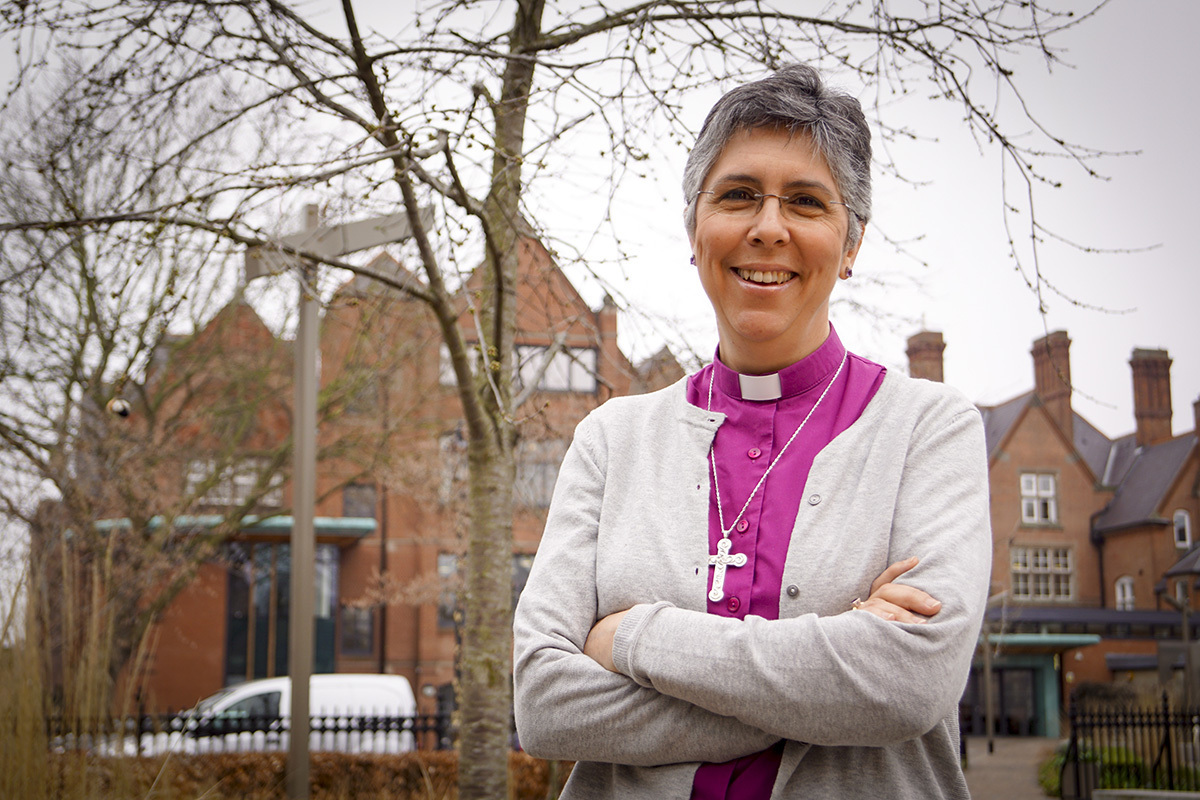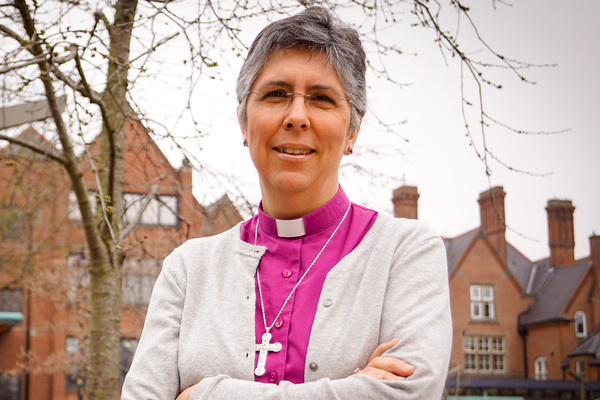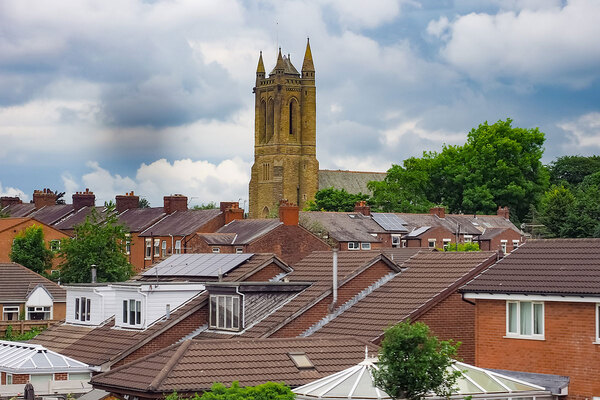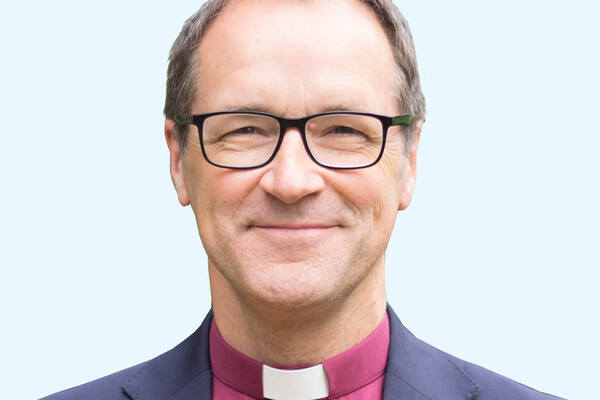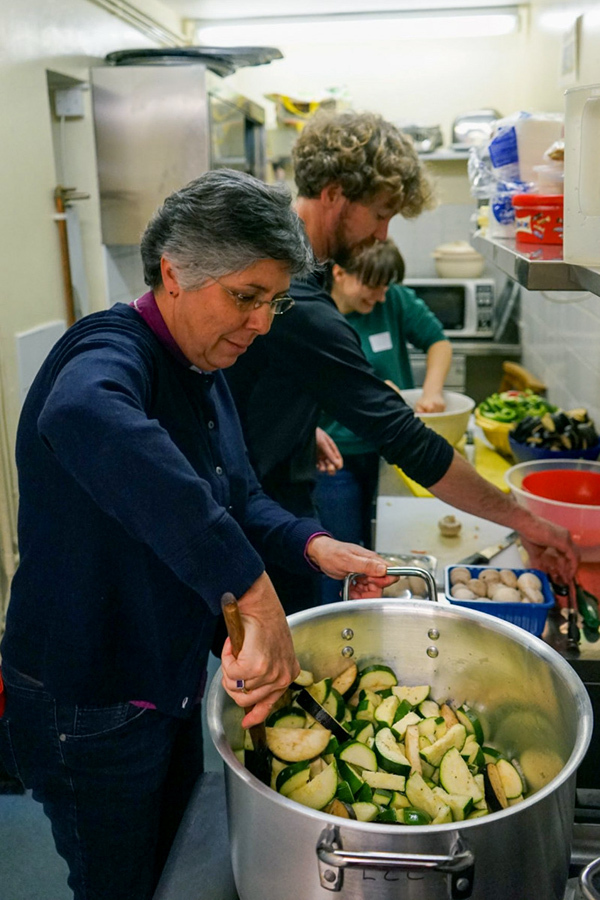You are viewing 1 of your 1 free articles
‘The current definition of affordable housing is unacceptable’: introducing the first ever bishop for housing
The Church of England’s first ever bishop for housing, Dr Guli Francis-Dehqani, has big plans to drive change in the church and society as well as give the word ‘affordable’ some meaning again. Martin Hilditch meets her to find out more
Dr Guli Francis-Dehqani knows more than most how precious a safe and stable home can be.
The current Bishop of Loughborough arrived in the UK at the age of just 13 as a refugee. Her family had fled persecution in Iran, where she was born, following the Iranian revolution. “The church was hit quite hard in the early stages of the revolution,” she states. (Her father, Hassan Dehqani-Tafti, was the Anglican Bishop of Iran.)
The family arrived in Britain in 1980. “We had been through some fairly traumatic experiences before arriving here,” Bishop Guli says – her parents survived an attempted assassination and her brother, Bahram, was murdered before the family gained refuge. On arrival in Britain, “I had a relatively soft landing as a refugee... my father was a bishop and therefore we had contacts in the Church of England here and we had family here,” she explains.
Today, she defines ‘home’ as “where the people you love are”. “But it is also where we have safety and can be ourselves and have stability and all of those things," she adds.
From this summer, Bishop Guli will have a major role to play in the Church of England’s attempts to shake up the housing system and make sure more people have a safe and secure home. Just weeks ago she was announced as the first ever bishop for housing, charged with spearheading the church’s efforts to tackle the housing crisis.
While stressing there is still much learning ahead, she’s speaking to Inside Housing today to outline her initial thinking about how she will approach the huge job in front of her and why she feels it is vital for the church to involve itself directly with the housing crisis.
The work, and the importance of a good home, is related “profoundly for me with the experience of injustice”, Bishop Guli states. “As a family, and as a church in Iran, we experienced a deep injustice. I see the housing crisis as a deep injustice in the lives of many people. I am passionate about the church being involved in seeking greater justice for those who are most marginalised. It seems to me that it is an expression of our faith – a very practical expression of our faith.”
“It seems to me the [housing] crisis isn’t getting any better. It is only getting worse. And, yes, I think part of our fundamental calling as Christians is not just to meet need where we see it, but to take a step back and say, ‘how can we be part of addressing the root causes’”
We speak just days before the publication of a major new report, which is two years in the making, from the housing commission set up by the Archbishop of Canterbury. Make no mistake about it, this is no wishy-washy document destined for an early trip to the recycling bin. Crucially, it seeks to commit the church to real action. This includes releasing more land for genuinely affordable housing - a potential gamechanger given the amount it owns (200,000 acres if you’re interested, which, let’s face it, you may well be). “We believe the church must lead by example,” the report states up front.
A motion has now been submitted to the General Synod asking elected members to “recognise formally the importance of meeting housing need, on behalf of all Anglican churches in this country”. The idea is that this will send a strong signal to diocese across the land that this is a vital part of their job.
Bishop Guli’s new role, which she will start in the summer, after starting another new role as Bishop of Chelmsford, was created as a direct result of a recommendation in the report. Bishop Guli, who is also the first female bishop from a minority ethnic background, will also have a seat in the House of Lords, providing another avenue for the church’s voice on housing.
One of her key day-to-day tasks is working alongside dioceses and other church bodies to strengthen relationships with housing associations, developers and landowners to “ensure the Church of England can play its part, including wherever possible using its own land well, to help resolve the housing crisis”.
Supported by Bishop of Kensington Dr Graham Tomlin, Bishop Guli will lead a small executive team, assisted by an advisory board, looking to build partnerships with organisations prepared to commit to the church’s five core values for good housing – as drawn up by the commission. These state that a good home needs to be safe, stable, sociable (a place where people can feel part of a community), satisfying and sustainable.
Further pieces of work will attempt to provide clarity to dioceses about how they might consider the wider community value when looking to sell land. The commission’s report states this could be “at less than full value to a housing association to deliver social housing” when a “developer is ready to pay more” - so social landlords really should be sitting up and paying attention. Charity law requires sales for terms that “are the best that can reasonably be obtained for the charity”. The feeling from the commission is that, in many circumstances, this has been interpreted far too narrowly in the past.
For Bishop Guli, all of this boils down to the need for the church to take more action to help prevent the housing crisis, rather than continually stepping in at crisis point.
“Many of our churches in the Leicester diocese are involved in things like the foodbanks and the kind of work that puts a sticking plaster on, as well as showing the compassion that I believe is absolutely fundamental,” she states. “But my interest in the housing commission is that it is trying to look at the source of the problem rather than just say that churches need to be involved in getting alongside those who are already caught up in it.”
While she says that she does not “have a huge amount of expertise [in housing] and there is a steep learning curve ahead of me”, Bishop Guli is perhaps being too modest. She has acted as a patron of homelessness charity One Roof Leicester, which provides accommodation, support and advice to people who are homeless, destitute refugees, asylum seekers and vulnerably housed.
She speaks powerfully about finding it “upsetting, heartbreaking and frustrating to go and see people in night shelters who you know the next morning are going to be back out on the streets where they were”.
“Until we can find effective solutions that give people long-term hope and stability, we are only going to be chasing our tail,” she states. “Because it seems to me the crisis isn’t getting any better. It is only getting worse. And, yes, I think part of our fundamental calling as Christians is not just to meet need where we see it, but to take a step back and say, ‘how can we be part of addressing the root causes.’”
“The primary issue with the housing sector is not just a lack of housing, but instead a lack of truly affordable housing, particularly for those on low incomes”
This wider role is the most likely to cause controversy for the church. The housing commission’s report certainly pulls no punches when it comes to calling out government housing and benefit policies. For starters it slates the absence of a proper housing strategy in England – “sadly, such a strategy has been absent for decades”. And it has even stronger words when it comes to the government’s siloed approach to housing and benefit policies.
Referring to “so-called ‘affordable’ rents” – the product the government pushed housing providers to deliver instead of cheaper social rents – the report says housing associations were encouraged to rely on the social security system to bridge the gap between the rents they charge and what is truly affordable.
“This trend was exacerbated in 2010 when capital support was cut by two-thirds with a ban on using public finance for what is usually called ‘social rented housing’,” the report states. It then adds: “Somewhat disingenuously, the government then argued that social security spending on housing was ‘out of control’ and limited its generosity.” The report itself suggests that “the primary issue with the housing sector is not just a lack of housing, but instead a lack of truly affordable housing, particularly for those on low incomes”.
Bishop Guli is not backing away from the challenge today. The government’s approach to affordability needs a rethink because “the current technical definition of it we are saying is unacceptable”. She adds: “It is meaningless, really.” Affordability should be linked to income rather than “80% of the market rate [which is how ‘affordable rent’ is defined]”.
“We are not a club for insiders, we are people with a vested interest in the lives of our communities. It seems to me that it is impossible for us to stay out of these kinds of discussions”
All of which could provoke criticism in some quarters that the church is overstepping the mark by wading into political debates about housing policy. Bishop Guli is unmoved by this challenge. “In terms of the church and politics, that argument has been going for years,” she states.
“In some senses I think that if the church doesn’t get involved in situations like this, there are criticisms, there are people who that say, ‘what is the good of the church if you don’t get involved in the public square and in politics with a small p’. And there are those who are very quick to say, ‘you are religious leaders, keep your nose out of politics’. For me, to be a Christian is to be part of the whole of life.”
This last point gets right to the heart of Bishop Guli’s view of the role of the church.
“We are not a club for insiders, we are people with a vested interest in the lives of our communities. It seems to me that it is impossible for us to stay out of these kinds of discussions. But to have credibility, we have to be able to lead by example and we have to be seen to be doing that.”
All of which brings us back to what might be the report’s central point. While the challenge to government policy might be eye-catching, it asks almost everyone involved in the system to do more to drive change.
“Clearly the housing crisis cannot be solved unless a whole variety of groups and people work together in partnership, and the church is just quite keen to be part of that movement”
“Absolutely. I think that is why the report is so fascinating, because it really is issuing a challenge to all of us,” Bishop Guli states. “Landowners, developers, government and so forth, but also to us as individuals. Unless we all in some shape or form commit to playing our part then we’re not going to solve that crisis, however many years we spend talking about it.”
While the report may have some strong words, its main focus is on reaching out. “Clearly the housing crisis cannot be solved unless a whole variety of groups and people work together in partnership, and the church is just quite keen to be part of that movement,” Bishop Guli adds. A central part of her role is to bring all those parties to the table.
In the immediate future the pressure is on the church more than anyone.
“The challenge is just as much to the church as it is to everywhere else,” she states. “Frankly, if we don’t manage to address that well, then we will lose our credibility in terms of leading on this.”
Watch this space, then, when it comes to the future use of church land. What is clear is that social landlords and developers are about to see a lot more of Bishop Guli. If she is successful, a whole new generation will feel the benefit of a safe and stable home.
